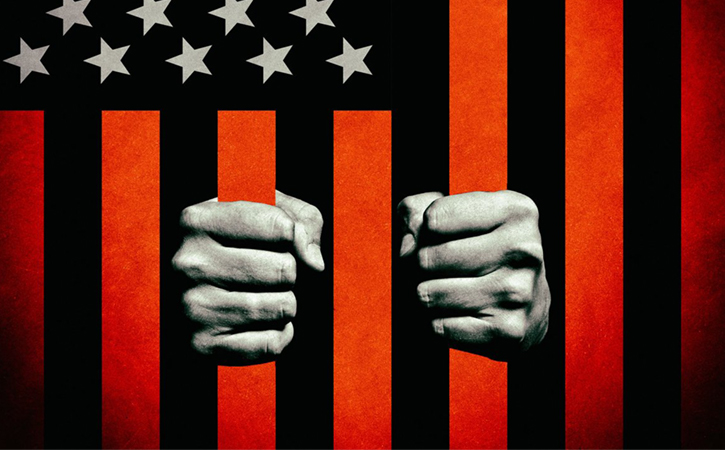Rights and Wrongs: A Constitution and Citizenship Day Conference at San Francisco State University (Call for Papers, Presentations, and Panels)

The Deparmtent of History at SF State is seeking submissions for their annual Constitution Day Conference. Full call for proposals and papers listed below. For more information click here.
Rights and Wrongs: A Constitution and Citizenship Day Conference at SF State
We welcome proposals for papers, presentations, panels, roundtables, teach-ins, and workshops at “Rights and Wrongs: A Constitution and Citizenship Day Conference,” which will take place on Monday and Tuesday, 16-17 September 2019.
Proposals for papers, presentations, panels, roundtables, teach-ins, and workshops (maximum 250 words) should be submitted by 20 June 2019 to marcs@sfsu.edu. We welcome individual and group submissions. Please submit short vitas/resumes for all participants. Recommended topics include but are not limited to:
- Academic Freedom for Faculty and Students
- Affirmative Action and Anti-Discrimination Law
- Amending the Constitution
- Asian American Legal Histories: Colonialism, Exclusion, and Internment
- Asylum, Migration, and Law
- Black Lives Matter and Racialized Policing
- Business, Religion, and the Freedom to Discriminate
- Campaign Finance, Citizens United, and the First Amendment
- Citizenship’s Inclusions and Exclusions
- Citizenship, Immigration, and the Census
- Civil Liberties in Times of War
- Colonies and the Constitution: Cuba, Guam, Philippines, Puerto Rico, and Samoa
- Comparative Constitutionalism in World History
- Corporate Power and Constitutional Personhood
- Criminalization of Homelessness, Mental Illness, Drug Use, and Sex Work
- Disability Rights to Life, Liberty, and Equality
- Dreamers, Deportation, and the Constitution
- Educational Rights, Equal Protection, and Local Democracy
- Equal Protection, Sexual Orientation, and Gender Expression
- Executive Orders and the Imperial Presidency
- Free Speech at Colleges and Universities
- Gender, Law, and Justice
- Gentrification, Displacement, and Housing Rights
- Gun Control and the Second Amendment
- Immigration Law and the Politics of Exclusion
- Impeachment and Presidential Politics
- Indigenous Treaty Rights and Political Sovereignty
- Islamophobia and the Muslim Ban
- Jewish-Muslim Constitutional Coalitions
- Jim Crow: Past, Present, Future
- Labor Law and the New Economy
- Nationalism, Populism, and the Constitution
- Palestine, Israel, and Campus Politics
- Police Powers and Constitutional Law
- Press Freedoms in the “Fake News” Era
- Prisons, Prisoners, and the Carceral State
- Privacy and the Constitution in the Social Media Era
- Restorative Justice
- Sanctuary Cities, Federalism, and the Politics of Immigration
- Sexual Harassment in the Me Too Era
- Slavery, Freedom, and Reparations
- Socialism and the Constitution
- Student Activism and Constitutional Rights
- Supreme Court Appointments
- Surveillance, Security, and Constitutional Law
- Trans Rights and Freedoms
- Voting Rights and Legislative Redistricting
- War Powers and International Law
- White Supremacy, Race Privilege, and the Constitution
- Women’s Suffrage: Approaching the 100th Anniversary
Over the last few years, people living in the United States have participated in far-reaching debates and discussions about the U.S. Constitution. Many of these conversations have focused on democratic governance and its relationship to state and federal elections, foreign collusion and domestic conspiracy, political and ethical corruption, voting rights, legislative redistricting, and presidential impeachment. Some have addressed core constitutional principles related to the separation of powers, checks and balances, and federal-state relationships. Others have concerned specific constitutional provisions such as freedom of speech, freedom of the press, separation of church and state, privacy rights, rights to bear arms, protections against unreasonable searches and seizures, birthright citizenship, due process rights, and rights of equal protection. Meanwhile, some of the most polarizing national discussions of 2017, 2018, and 2019—about racialized policing, immigration restriction, sanctuary cities, health care, sexual harassment, LGBT rights, hate speech, and gun control—have been framed as matters of constitutional meaning and significance. Just as important and revealing are the constitutional topics that much of the country has not been considering, including the rights of indigenous, colonized, incarcerated, and institutionalized peoples on lands currently claimed by the United States.
What have we thought about the Constitution in the past and what do we think of it today? When, how, and why have we thought about the Constitution? How has the Constitution been used as a legal and cultural touchstone in the past and present? Has the Constitution supported the expansion of citizenship, democracy, and equality or has it produced, preserved, and promoted social hierarchies? What does the Constitution reveal and obscure? Is the United States experiencing constitutional crises? Have the country’s recent political troubles exposed longstanding problems with or new threats to the U.S. constitutional order? Can the history of the U.S. Constitution serve as a resource for people troubled by today’s uses and abuses of U.S. power and politics? For those seeking social change, is the Constitution an opportunity or obstacle? Can and should it be followed, changed, modified, or abandoned? Who makes meaning out of the U.S. Constitution and what meanings are made? What are the implications of our interpretations and transformations of the U.S. Constitution?
Please join us to discuss these and other issues at “Rights and Wrongs.” San Francisco State University has a proud tradition of sponsoring Constitution and Citizenship Day conferences. Last year’s event was sponsored by the College of Liberal and Creative Arts and cosponsored by fourteen other colleges, schools, departments, centers, and campus organizations at SF State. More than 1000 faculty, students, and community members attended the event, which featured two keynote presentations and approximately forty faculty, graduate student, and community-based presenters, representing fourteen colleges, universities, and non-governmental organizations. As was the case last year, the 2019 conference will provide multiple opportunities to reflect critically on the past, present, and future of constitutional rights and freedoms and larger questions about equality, democracy, and justice.
We will be using the hashtag #rightsandwrongs for the conference. Please feel free to use it in your tweets and tag us @RightsWrongsSF to continue the conversations online.
Conference Website: https://history.sfsu.edu/content/constitution-day